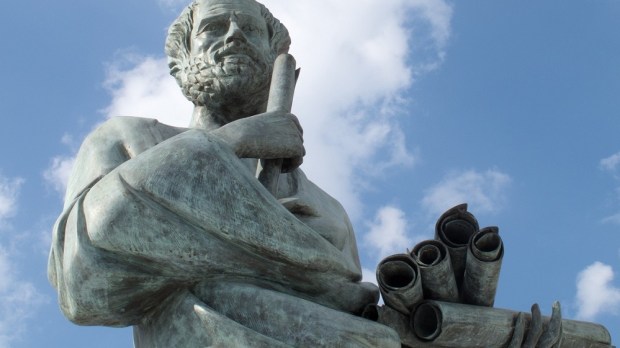A recent post by Subrena Smith about her experiences teaching philosophy to undergraduates who take her courses to satisfy general education requirements, got me thinking, again, about the age-old question of the nature of philosophy and about why is it so difficult to explain to the general public what philosophy is all about.
It could be said philosophers, for the most part, have reached some common ground on the nature of their centuries old discipline. For one, there seems to be no doubt that they are concerned with thinking and with expressing the conclusions (or even the steps) of that thinking process. Even more, there seems to be a reigning consensus among them about the kind of thinking that characterizes philosophy: philosophical thinking is conceptual thinking, that is, thinking about concepts (see, for instance, P.F. Strawson’s Analysis and Metaphysics: An Introduction to Philosophy). So, the question is why does this kind of thinking leave people so perplexed and why does it constantly trigger the question about its ultimate value.
As Prof. Smith points out, in our day and age, a lot of this has to do with the contrast people draw between philosophy and science. In the view of the general public, philosophy is a fuzzy discipline that’s concerned only with matters of opinion, whereas science solves real-world problems and gives us technology. And, besides, as Bridget Falck writes in another piece in Aeon, people are aware of the statements about the irrelevance of philosophy to science a lot of prominent scientists have publicly made (see for instance, Steven Weinberg’s in Dreams of a Final Theory), not to mention other comments where “anti-philosophites” claim philosophy is utterly worthless (yes, Neil deGrasse Tyson I’m looking directly at you).
This contrast between philosophy and science is, perhaps, an unintended consequence of our university system and the way science is normally taught. In the general public mind, science is nothing more than a long record of empirical (“objective”) facts and the scientific method is just the best way to organize and expand this record. But the truth is that, all areas of science confront questions that are not factual in any way and that can’t be answered within the process of science itself. In other words, every science is full of philosophical puzzles and philosophical choices will always play a role in building and testing theories.
But, if the right educational platform is laid, philosophers will not have to work against the current to convince the general public about the value of their discipline. In order to reform our current educational platform, philosophers will certainly need the assistance of their scientist colleagues. In this ideal, new scenario scientists would continue to teach the fundamentals of science, but they would also made clear to their students that science brims with important conceptual issues which philosophers are uniquely situated to address, issues that, as Prof. Smith wrote, are far from being irrelevant to science:
“Albert Einstein’s philosophical thought experiments made Cassini possible. Aristotle’s logic is the basis for computer science, which gave us laptops and smartphones. And philosophers’ work on the mind-body problem set the stage for the emergence of neuropsychology and therefore brain-imaging technology. Philosophy has always been quietly at work in the background of science.”

